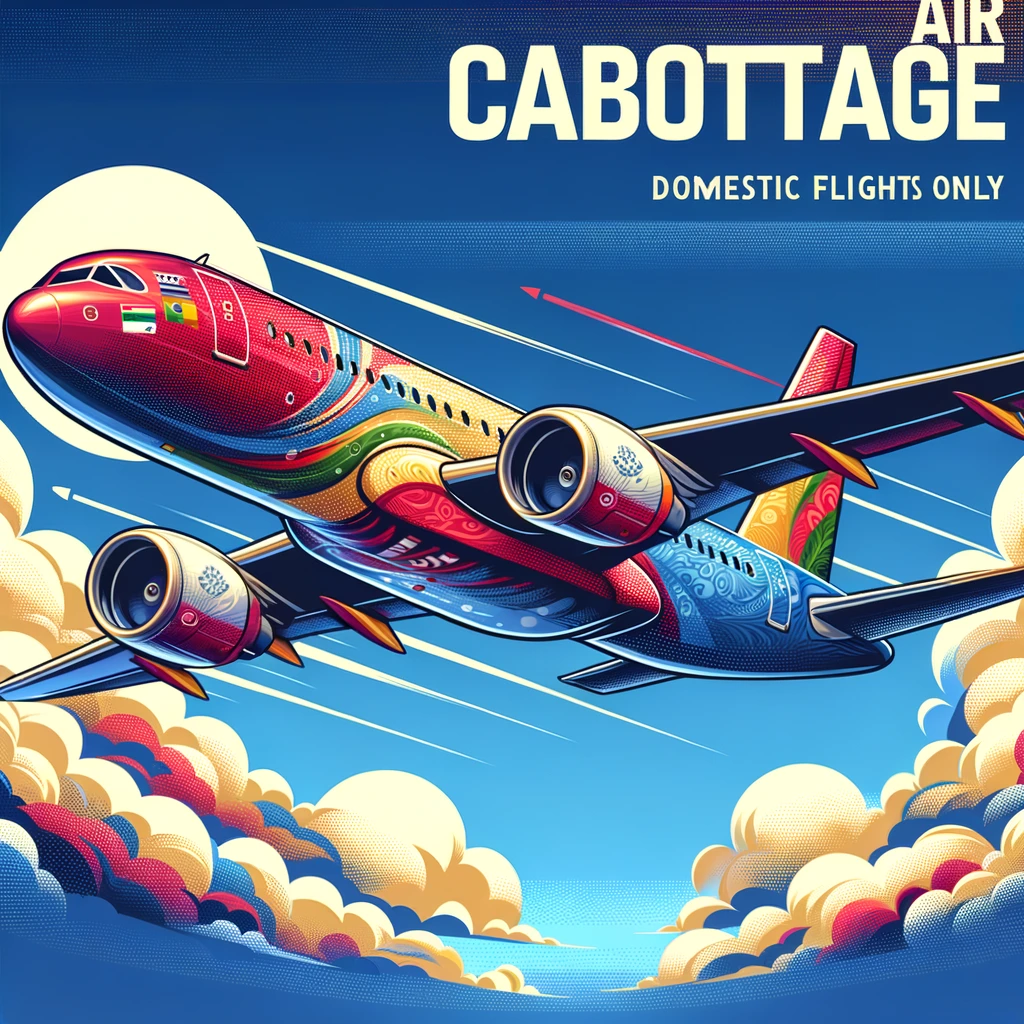In the complex field of aviation law, cabotage plays a critical role in shaping international air transport policies and practices. This term, while not commonly known outside legal and aviation circles, significantly impacts airline operations, national sovereignty, and the global aviation market.

We explore the concept of cabotage in aviation law, its implications, and how it influences the airline industry’s regulatory landscape.
Understanding Cabotage in Aviation
Cabotage refers to the right of an airline to operate within the domestic borders of another country. In the aviation industry, this means that a foreign airline is allowed to pick up and drop off passengers or cargo in two or more points within another country’s borders. This concept is closely tied to national sovereignty and economic policy.
Historical Background and Legal Basis
The concept of cabotage has its roots in maritime law, originally referring to the transport of goods or passengers between two points within the same country by a vessel registered in another country. In aviation, cabotage rights are typically negotiated as part of bilateral air service agreements (BASAs) or under international air transport agreements, such as Open Skies Agreements.

The Significance of Cabotage in International Aviation
Cabotage rights are highly coveted in the aviation industry for several reasons:
- Market Access: Granting cabotage rights can provide airlines access to new domestic markets, potentially leading to increased passenger traffic and revenue.
- Competitive Dynamics: Cabotage can introduce competition in domestic markets, which may benefit consumers through lower fares and improved services but can also pose challenges to local carriers.
- Economic and Regulatory Considerations: Countries carefully regulate cabotage rights to protect their domestic aviation industry and ensure national security.
Cabotage Restrictions and Global Practices
In many countries, cabotage is heavily restricted or outright prohibited to protect local airlines from foreign competition. These restrictions are enforced to support national carriers, preserve jobs, and maintain control over domestic transportation infrastructure.
- USA: The United States has stringent cabotage laws, generally prohibiting foreign airlines from conducting domestic flights.
- European Union: Within the EU, cabotage rights are generally allowed among member states, fostering a more integrated internal aviation market.
- Asia-Pacific and Other Regions: Policies vary significantly, with some countries allowing limited cabotage rights under specific conditions or as part of regional economic integration efforts.
Challenges and Debates Surrounding Cabotage
The issue of cabotage in aviation law is often a subject of debate:
- Economic Impact: Proponents argue that allowing cabotage can lead to more competitive airfares and better services for passengers, while opponents raise concerns about the negative impact on domestic airlines and employment.
- Legal and Diplomatic Negotiations: Negotiating cabotage rights involves complex legal and diplomatic considerations, often reflecting broader economic and political relationships between countries.
Cabotage remains a key element in the discourse of international aviation law and policy. Balancing the interests of national sovereignty, economic protectionism, and the benefits of open competition poses ongoing challenges for policymakers and industry stakeholders. As the global aviation landscape continues to evolve, the conversation around cabotage and its implications is likely to remain a dynamic and crucial aspect of international air transport regulation.
Source:


I really appreciate this post. I have been looking everywhere for this! Thank goodness I found it on Bing. You have made my day! Thank you again
The articles you write help me a lot and I like the topic